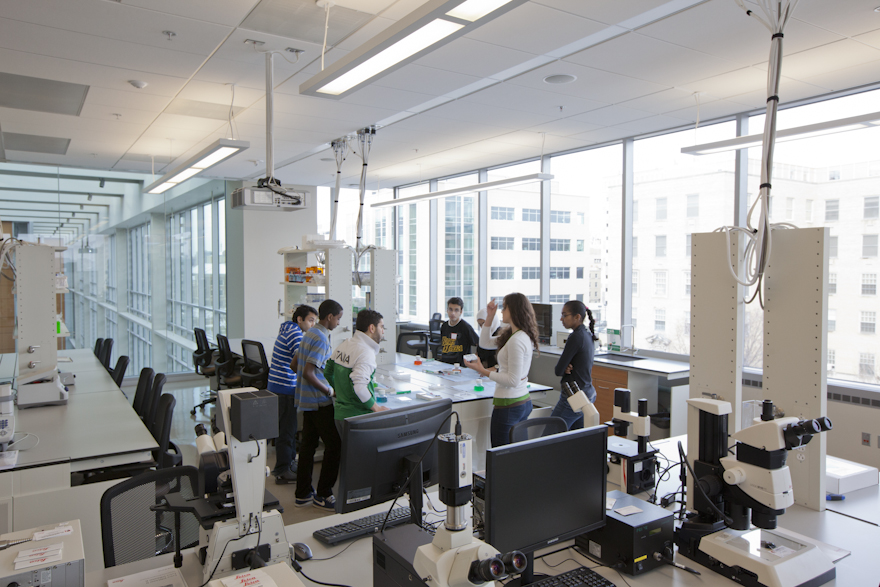After Moody’s and other credit ratings agencies tightened their standards a few years ago, universities had to become much more disciplined about their financing mechanisms.
“Internally, we are paying a great deal of attention to cash on hand relative to debt to maintain our good ratings,” says Gonzaga University EVP Marty Martin. “It’s a constant reference point.”
“The financing climate is different than it was 20 years ago,” notes UC Santa Barbara Campus Architect Marc Fisher, AIA. “The state is not funding construction at the same pace. We’re going to see more student-funded, donor-funded, and research-funded projects. We’ll see more creative funding in the future.”
One such creative funding option is the public-private partnership. The PPP strategy is most popular for student housing, mixed-use buildings, parking facilities, and retail—any project with a revenue stream.
The University of Texas at Dallas recently selected Balfour Beatty and Wynne/Jackson to develop a mixed-use project near the edge of the campus. To be called “Comet Town,” the project will be financed through a land lease, whereby the university will lease the land to the developer who will build, own, and operate the building for a specific period.
Apartments will be open to the public, but most residents are expected to be part of the UT community, says Dr. Calvin Jamison, VP of Administration.
The University of Wisconsin–Madison has employed third-party partnerships sparingly, but did so twice when a private developer needed more space to build on a couple of residential/retail properties adjacent to campus.
The state university also teamed up with the Morgridge Institute for Research a few years ago to build the Wisconsin Institutes for Discovery, a research lab that includes retail/restaurant space. Half of the lab space is privately owned.
In the wake of the recession, Cornell University instituted new guidelines for major capital projects. “One of the pillars of the new policy was no new debt,” says University Architect Gilbert Delgado, AIA. “Funding for all projects has to be either identified or on hand before a project goes forward.”
For Weill Cornell Medical College, a New York City institution since 1898, the university is exploring the construction of a major residential tower with a private developer. “Our goal is to make housing more affordable for students, faculty, and staff,” says Delgado.
To keep rents affordable, future residential projects in the city might include so-called micro apartments about half the size of a studio unit, supplemented with more generous common areas. Delgado says the university is also studying how to build more affordable housing in Ithaca—“maybe through PPP-type land-lease agreements,” he says.
More from BD+C's exclusive report, "How your firm can gain an edge on university projects."
Related Stories
Museums | Aug 11, 2010
Design guidelines for museums, archives, and art storage facilities
This column diagnoses the three most common moisture challenges with museums, archives, and art storage facilities and provides design guidance on how to avoid them.
| Aug 11, 2010
Broadway-style theater headed to Kentucky
One of Kentucky's largest performing arts venues should open in 2011—that's when construction is expected to wrap up on Eastern Kentucky University's Business & Technology Center for Performing Arts. The 93,000-sf Broadway-caliber theater will seat 2,000 audience members and have a 60×24-foot stage proscenium and a fly loft.
| Aug 11, 2010
Citizenship building in Texas targets LEED Silver
The Department of Homeland Security's new U.S. Citizenship and Immigration Services facility in Irving, Texas, was designed by 4240 Architecture and developed by JDL Castle Corporation. The focal point of the two-story, 56,000-sf building is the double-height, glass-walled Ceremony Room where new citizens take the oath.
| Aug 11, 2010
Carpenters' union helping build its own headquarters
The New England Regional Council of Carpenters headquarters in Dorchester, Mass., is taking shape within a 1940s industrial building. The Building Team of ADD Inc., RDK Engineers, Suffolk Construction, and the carpenters' Joint Apprenticeship Training Committee, is giving the old facility a modern makeover by converting the existing two-story structure into a three-story, 75,000-sf, LEED-certif...
| Aug 11, 2010
Utah research facility reflects Native American architecture
A $130 million research facility is being built at University of Utah's Salt Lake City campus. The James L. Sorenson Molecular Biotechnology Building—a USTAR Innovation Center—is being designed by the Atlanta office of Lord Aeck & Sargent, in association with Salt-Lake City-based Architectural Nexus.
| Aug 11, 2010
San Bernardino health center doubles in size
Temecula, Calif.-based EDGE was awarded the contract for California State University San Bernardino's health center renovation and expansion. The two-phase, $4 million project was designed by RSK Associates, San Francisco, and includes an 11,000-sf, tilt-up concrete expansion—which doubles the size of the facility—and site and infrastructure work.
| Aug 11, 2010
Goettsch Partners wins design competition for Soochow Securities HQ in China
Chicago-based Goettsch Partners has been selected to design the Soochow Securities Headquarters, the new office and stock exchange building for Soochow Securities Co. Ltd. The 21-story, 441,300-sf project includes 344,400 sf of office space, an 86,100-sf stock exchange, classrooms, and underground parking.
| Aug 11, 2010
New hospital expands Idaho healthcare options
Ascension Group Architects, Arlington, Texas, is designing a $150 million replacement hospital for Portneuf Medical Center in Pocatello, Idaho. An existing facility will be renovated as part of the project. The new six-story, 320-000-sf complex will house 187 beds, along with an intensive care unit, a cardiovascular care unit, pediatrics, psychiatry, surgical suites, rehabilitation clinic, and ...
| Aug 11, 2010
Colonnade fixes setback problem in Brooklyn condo project
The New York firm Scarano Architects was brought in by the developers of Olive Park condominiums in the Williamsburg section of Brooklyn to bring the facility up to code after frame out was completed. The architects designed colonnades along the building's perimeter to create the 15-foot setback required by the New York City Planning Commission.








